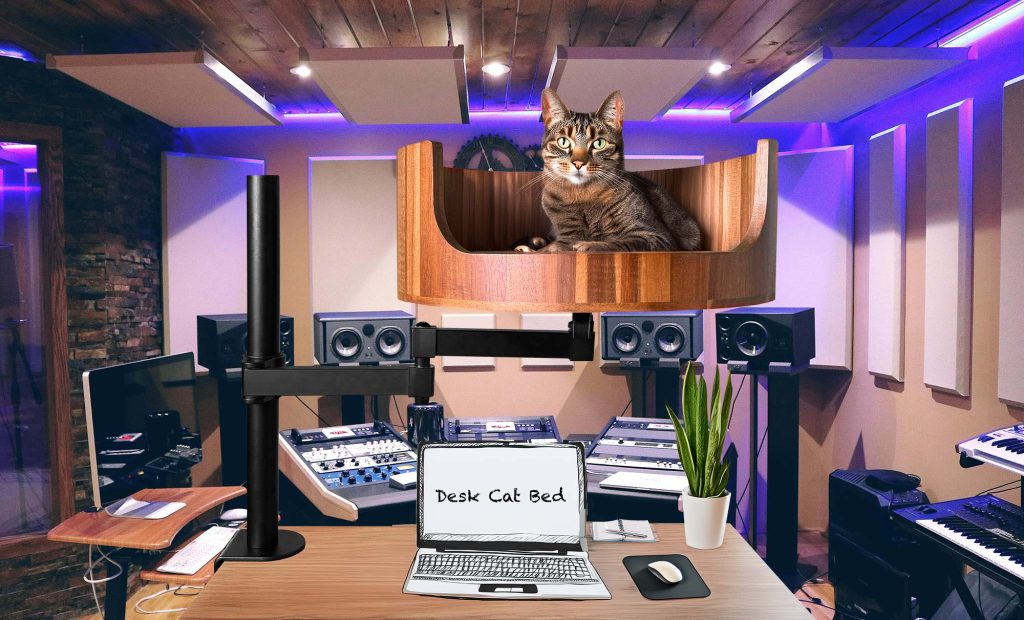Does your cat seem to be constantly hungry lately, no matter how much you feed them? Increased appetite in cats can be a concerning issue for many pet owners, but understanding the possible causes and solutions is key to managing this behavior. In this article, we will explore the various reasons why cats may experience an increase in appetite and provide practical tips on how to address this issue effectively.
From medical conditions such as hyperthyroidism or diabetes to behavioral factors like stress or boredom, there are a variety of reasons why your cat may be eating more than usual. By identifying the underlying cause of your cat’s increased appetite, you can work towards finding the right solution to help them maintain a healthy and balanced diet. With the right knowledge and guidance, you can ensure that your furry friend remains happy, healthy, and well-fed. Stay tuned as we delve into the causes and solutions for increased appetite in cats.
1. Increased appetite in cats can be a sign of underlying health issues such as hyperthyroidism or diabetes.
2. Regular veterinary check-ups and blood tests are essential to identify and address the root cause of your cat’s increased appetite.
3. Environmental factors like stress or boredom can also play a role in your cat’s eating habits.
4. Providing a balanced diet and engaging your cat in regular play and exercise can help prevent overeating.
5. Consult with your veterinarian to create a customized plan to manage your cat’s increased appetite and improve their overall well-being.
Causes of Increased Appetite in Cats
There are several potential reasons why a cat may experience an increase in appetite. One common cause is a change in diet or feeding schedule. Cats are known for being creatures of habit, so any alterations to their regular routine can lead to increased hunger. Medical conditions such as diabetes, hyperthyroidism, or parasites can also result in a higher appetite in cats. Stress, anxiety, or boredom can manifest as excessive hunger in some felines. It is crucial to consult with a veterinarian to determine the underlying cause of your cat’s increased appetite.
Medical Conditions Leading to Increased Appetite
Certain medical conditions can directly impact a cat’s appetite and lead to increased hunger. Hyperthyroidism, a common hormonal disorder in older cats, can cause a significant increase in metabolism and result in a voracious appetite. Diabetes mellitus, another prevalent condition in felines, can lead to excessive hunger due to the body’s inability to properly regulate blood sugar levels. Parasites such as roundworms or tapeworms can also cause a cat to be hungrier than usual as these parasites consume nutrients from the cat’s body.
Behavioral Reasons for Increased Appetite
Behavioral factors can also contribute to a cat’s increased appetite. Cats that are stressed or anxious may turn to food for comfort, leading to overeating. Boredom can also manifest as excessive hunger, as some cats may resort to eating out of sheer boredom. It is essential to provide mental stimulation, interactive play, and environmental enrichment to prevent boredom-related eating behaviors in cats. Additionally, maintaining a consistent feeding schedule and offering appropriate portion sizes can help regulate your cat’s appetite.
Solutions for Managing Increased Appetite in Cats
There are several strategies you can implement to help manage your cat’s increased appetite. If the cause is determined to be a medical condition, your veterinarian may recommend specific treatments or medications to address the underlying issue. In cases of stress or anxiety, providing a calm and predictable environment for your cat can help alleviate emotional triggers for overeating. Offering enrichment activities such as puzzle feeders, interactive toys, or rotating feeding schedules can help satisfy your cat’s mental and physical needs without relying solely on food. Monitoring your cat’s weight and feeding habits closely can also help you identify any changes in appetite early on and address them promptly.
Frequently Asked Questions
Does the Desk Cat Nest help with a cat’s increased appetite?
Yes, the Desk Cat Nest is designed to provide a comfortable and stress-free environment for your cat, which can help alleviate anxiety-related overeating behaviors often associated with increased appetite.
How does the Desk Cat Nest promote a healthier eating routine for cats?
The Desk Cat Nest encourages cats to engage in natural behaviors like jumping, climbing, and exploring, which can keep them mentally stimulated and physically active. This can help regulate their appetite and prevent excessive eating.
Can the Desk Cat Nest accommodate multiple cats at once?
Yes, the Desk Cat Nest is spacious enough to accommodate multiple cats of various sizes. Each level provides enough room for cats to relax, play, and eat without feeling crowded.
Is the Desk Cat Nest easy to assemble?
Yes, the Desk Cat Nest comes with clear instructions and all necessary hardware for easy assembly. Most customers find it quick and straightforward to put together without the need for special tools.
Can the Desk Cat Nest be easily cleaned and maintained?
Yes, the Desk Cat Nest is made of durable materials that are easy to wipe clean with a damp cloth or mild soap. The surfaces are also scratch-resistant and pet-friendly, making maintenance a breeze.
In conclusion, providing your cat with a comfortable and stress-free environment is essential for maintaining a healthy appetite. The Desk Cat Bed offers a cozy and secure space for your feline friend to relax and eat, promoting a sense of security and comfort that can help increase their appetite. With its high-quality materials and durable design, this bed is a valuable choice for ensuring your cat’s overall well-being. Invest in a Desk Cat Bed today and experience the numerous benefits it can bring to your furry companion.


